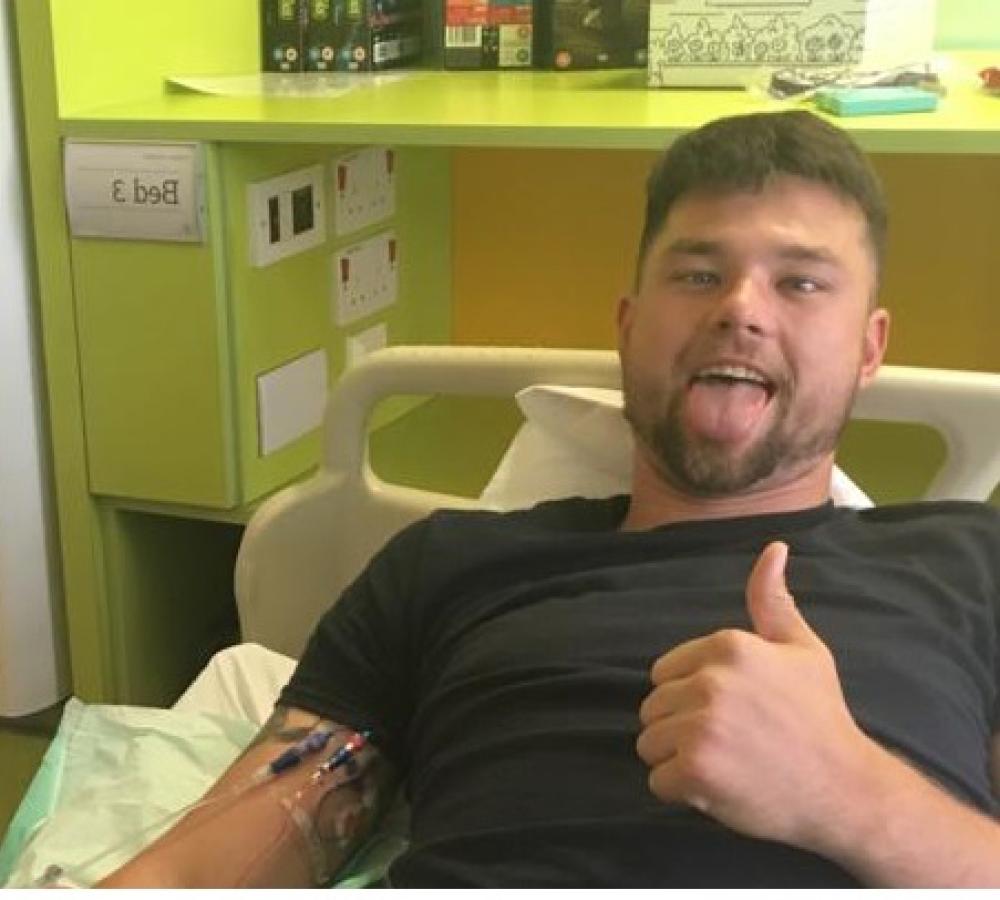Living healthily during cancer
Eating, sleeping and exercising can be tough when you have cancer, but it’s really important to look after yourself as well as possible during treatment.
You are viewing: Healthy living
Healthy living
It might seem strange to think about staying healthy if you’re already living with cancer, but taking care of yourself now can make a real difference to the way you feel about yourself. So try to eat well, exercise when you can and get a good night’s sleep. Sometimes all of these things can be a struggle – but there is plenty you can do to try and make them a little easier.
Eating well
When it comes to food and cancer, the theory is pretty simple. A healthy, varied diet is important, because it gives your body the energy it needs to fight cancer.
In practice though, it’s not always that easy. Some treatments might make you feel sick, so you end up losing weight because you can’t face eating. Others – like steroids – might make you put on weight, so you end up feeling self-conscious and not wanting to eat.
Whatever your experience is, try not to let food get you down. It is important to try and eat plenty of:
- Fresh fruit and veg
- Quality proteins (like beans, eggs, fish, meat and nuts)
- Carbohydrates (like bread, pasta, potatoes and rice)
But worrying won’t make food easier to stomach. So eat what you can when you can.
If you lose weight
If you find you’re feeling sick and not wanting to eat, let your doctors and nurses know. They might be able to give you drugs that will help. You can also try:
- Eating small, frequent meals, rather than a few big meals a day
- Chopping up food small to make it easier to stomach
- Eating food that doesn’t smell strong
- Eating with other people to take your mind off the food
- Avoiding your favourite foods after treatment – you can really put yourself off them
- Keeping a sick bag nearby, just in case.
If you’re losing weight, your medical team will suggest ideas that could help you put on a few pounds. You could try:
- Eating foods that have a lot of calories, like ice cream, cheese, milkshakes, yoghurts and all of the other things you’re usually told not to eat
- Drinking energy drinks
- Concentrating on getting plenty of protein-rich food – like meat, fish, eggs and nuts
- Waiting when you can’t face food. If you don’t feel up to eating, just take a few hours then try again.
If you put on weight
If you gain a few pounds during cancer treatment, it’s really important that you don’t avoid eating to try and stop putting any more weight on. Weight gain during treatment is usually temporary, and right now your body needs energy to help fight your cancer and its treatment.
Instead, try to focus on:
- Eating healthily, which will help you to avoid real long-term weight gain (rather than weight gain caused by your treatment)
- Filling up on plenty of fruit and veg
- Drinking lots of water
- Exercising when you can
- Talking about how you feel. Let people know if you’re worried about your weight – keeping feelings to yourself usually makes them worse.
Exercise
There might be times when exercise is the last thing on your mind, so don’t push it. If you’re feeling wiped out during treatment, your body is asking to recover, so it’s important to listen.
But on the days when you do feel better, exercise can give your body and your mind a boost. You don’t need to run a marathon or end up covered in sweat. We’re talking:
- A walk around the park
- A few squats or stretches
- A bike ride
- A gentle online exercise class – like Tai Chi or yoga
Whatever you do, there are plenty of benefits. Exercise can help you:
- Feel better about yourself
- Get together with friends
- Feel energised
- Get to sleep more easily
- Deal with your emotions
- Keep your bones strong
- Heal tissues and organs that have been damaged by cancer treatment.
Sleeping
Cancer can leave you feeling exhausted, so you’d think sleeping would be easy. Sadly it’s not always that simple. Feeling stressed or unwell can stop you from drifting off, and sleeping in a hospital is never the same as curling up in your own bed.
It is important to get plenty of sleep though, because it can make your treatment easier to deal with and can improve your mood and concentration too. Here are a few tips you might like to try:
Relaxing in the evenings
Watch a DVD. Listen to music. Do whatever makes you feel calm – and try not to stress about anything that’s on your mind.
Having a routine
Going to bed and waking up at the same time every day helps your body know what to expect.
Avoiding caffeine before bed
Reach for a glass of milk or water, rather than a Red Bull, coffee or coke.
Exercising
If you feel up to it, gentle exercise will leave you feeling ready for a good night’s sleep
Giving up easily
It’s not advice you hear very often but, when it comes to sleeping, it makes sense. If you can’t sleep after 20 minutes, don’t keep tossing and turning. Do something to relax your mind – like reading – and then try to sleep again once you start to feel sleepy.

